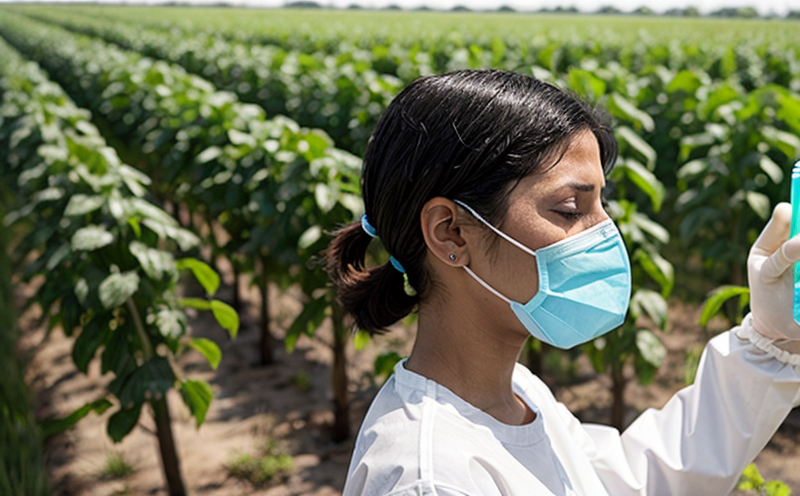Chemical Pollutants & Pesticides Testing
The testing of chemical pollutants and pesticides is a critical aspect in ensuring environmental quality and human health. This service focuses on analyzing samples for the presence of various toxic substances, including heavy metals, organic compounds, and pesticide residues. Our laboratory adheres to international standards such as ISO 17025 and uses advanced analytical techniques like GC-MS (Gas Chromatography-Mass Spectrometry) and HPLC (High Performance Liquid Chromatography).
Our team of experts employs rigorous sample preparation methods tailored to the specific compounds being tested. This includes extraction, purification, and derivatization processes that ensure accurate detection even in trace amounts. The laboratory utilizes state-of-the-art instrumentation which guarantees precise results within acceptable tolerances.
The scope of this service extends beyond mere identification; it also involves assessing potential risks associated with detected contaminants. By providing comprehensive reports detailing concentrations found along with comparative data against regulatory limits, we empower stakeholders to make informed decisions about corrective actions needed.
To ensure reliability and accuracy in our findings, we follow strict protocols outlined by relevant international standards such as ISO 17025 for proficiency testing programs. Our commitment to quality is further reinforced through continuous training of staff members on latest technological advancements and adherence to best practices throughout the entire analytical process.
Customer Impact and Satisfaction:
- Accurate results leading to enhanced decision-making capabilities
- Improved regulatory compliance reducing legal risks for organizations
- Promotion of sustainable practices through informed choices regarding product development or sourcing materials
Applied Standards
The application of appropriate standards is crucial in ensuring consistent and reliable testing outcomes. Our laboratory complies with several internationally recognized guidelines including:
- ISO/IEC 17025: General requirements for the competence of testing and calibration laboratories.
- ASTM E1615-09: Standard practice for assessing the impact of pesticide residues on water quality.
- EN ISO 13485: Quality management systems for medical devices manufacturing.
These standards guide our operations from sample receipt through analysis and reporting, ensuring that every step adheres to best practices. Compliance with these regulations not only enhances the credibility of our results but also contributes significantly towards maintaining public trust in environmental testing services.
Customer Impact and Satisfaction
- Enhanced decision-making capabilities by providing accurate test results.
- Reduced legal risks through improved compliance with regulatory requirements.
- Promotion of sustainable practices through informed choices regarding product development or sourcing materials.
Our focus on delivering precise and reliable data has earned us a reputation for excellence among our clients. By leveraging our expertise in chemical pollutants & pesticides testing, organizations can stay ahead of regulatory changes while protecting both their reputations and the environment.
Use Cases and Application Examples
- Environmental impact assessments for industrial projects requiring baseline data on local pollutant levels before construction begins.
- Monitoring compliance with environmental regulations imposed by governmental bodies like EPA or ECHA.
- Supporting research initiatives aimed at developing safer agricultural practices without compromising crop yields.
In addition to these applications, our laboratory also participates in collaborative studies designed to understand long-term effects of various contaminants on ecosystems. These efforts contribute valuable insights that help shape policies aimed at mitigating adverse impacts on natural habitats and human health.





